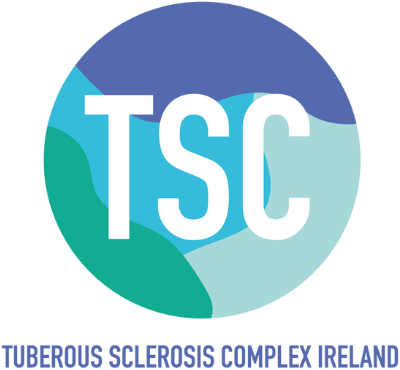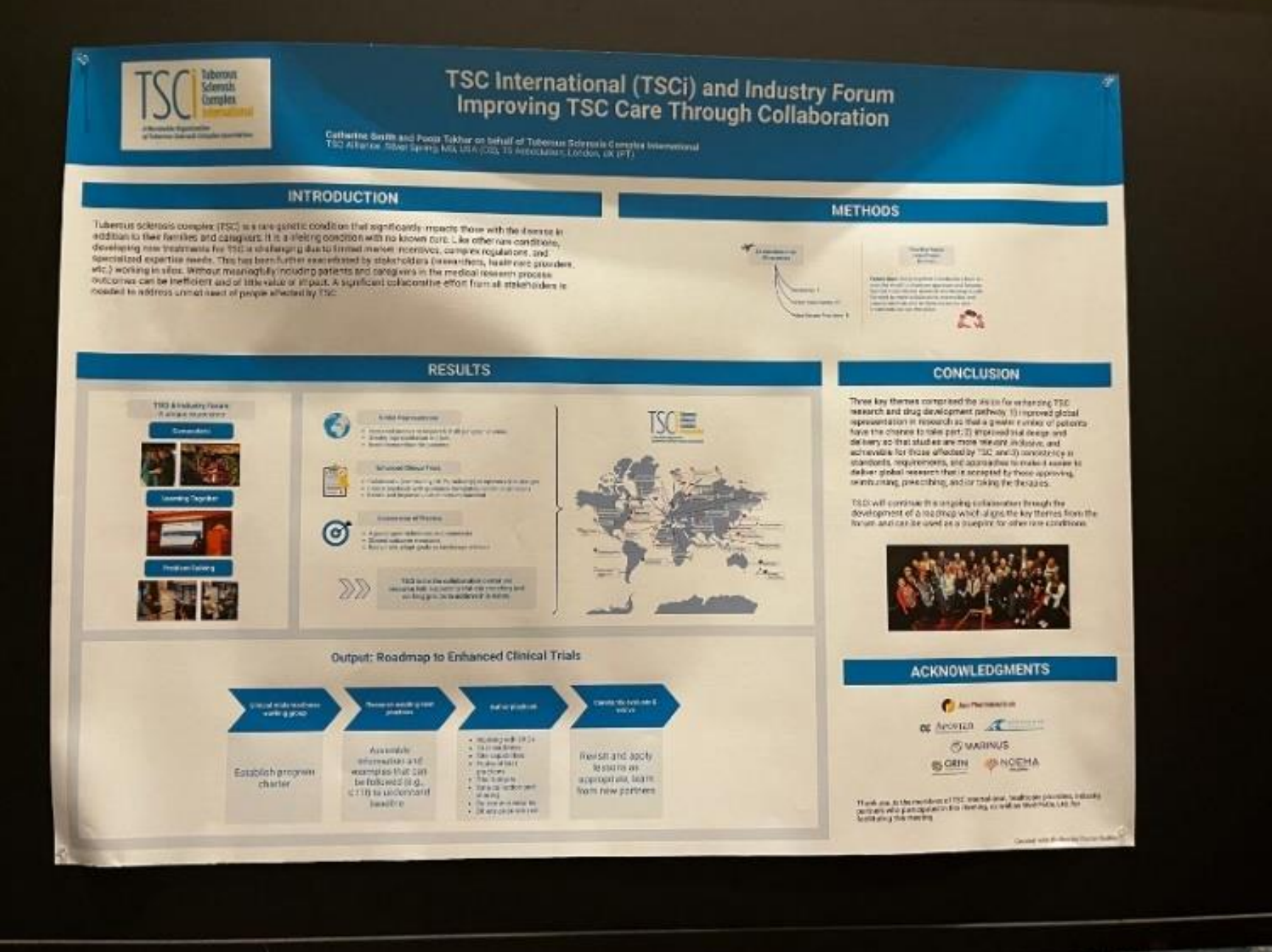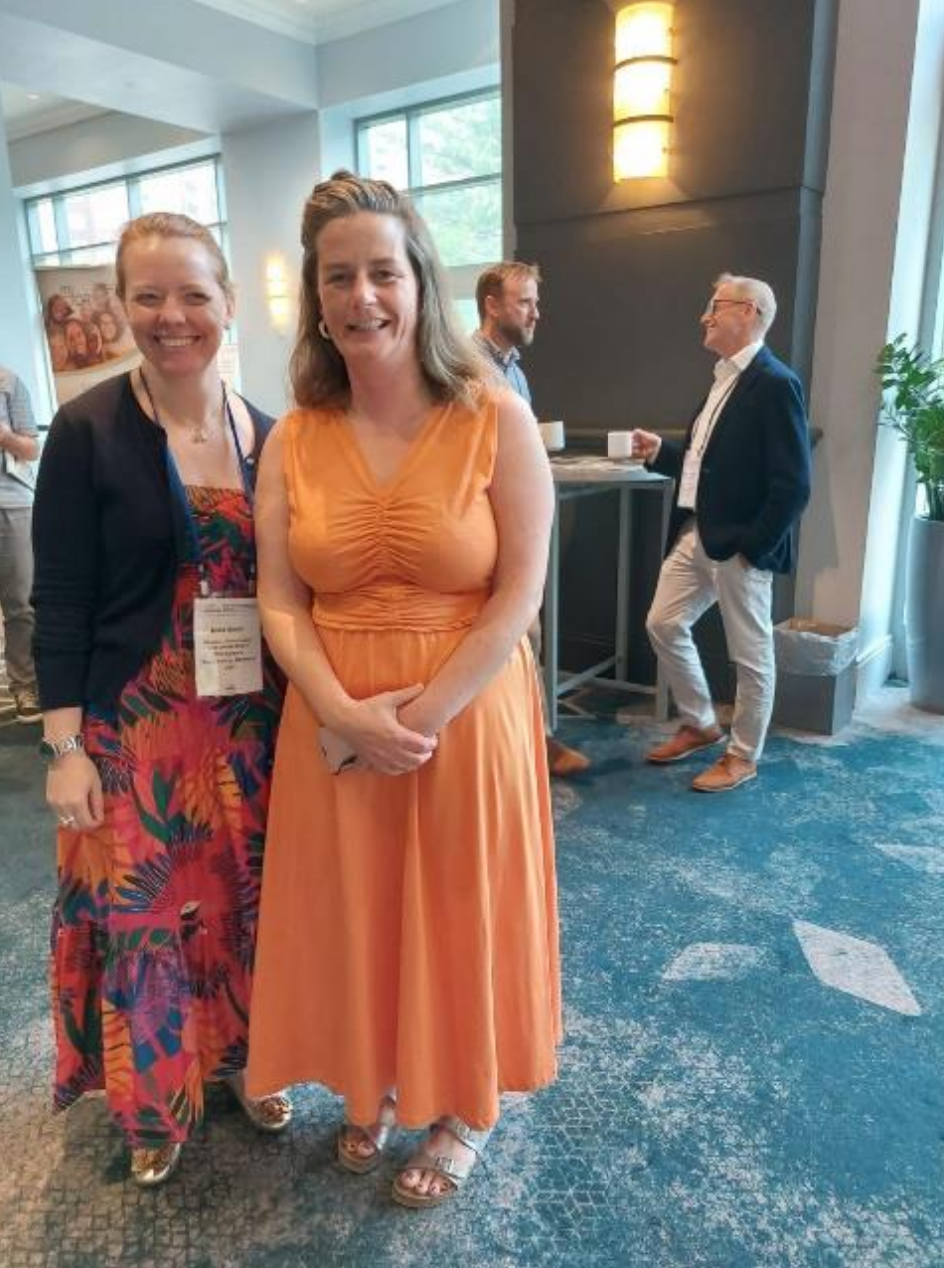Notes from TSC Alliance 2025 Research Conference
TSC Alliance is a major driver in TSC research and has invested more than $37 million in research since 1984. That funding has led to additional finance from other sources and through collaboration with partners resulted in major scientific breakthroughs including six FDA approved treatments.
It hosts an International TSC Research Conference every second year that brings together top TSC researchers from around the world with a focus on structured, collaborative discussions on groundbreaking research topics to address unmet medical needs of those affected by TSC. The 2025 conference “Engage, Accelerate, Transform” was held from June 26-28 in Bethesda, MD, USA. Dr Damien Ferguson, consultant neurologist St James’ Hospital, Laura Enright and Mary Vasseghi from TSC Ireland went along.
There were 255 individuals from 25 different countries. Clinicians, researchers, patients and families who have worked together for years and know each other well, shared experiences, challenges, ideas, explored future collaboration and simply caught up with each other too. It was like being at a big family reunion. This warm and welcoming TSC family is unique in the medical and research world, one big family with one shared passion - TSC.
The conference featured 29 main-session oral presentations, 9 early-career symposium oral presentations, 56 poster presentations, and 3 mini-symposia sessions. One of the posters was on a collaboration between the USA, Argentina and Ireland.
Please consult the program book for more details of the conference below;
Epilepsy & TAND
The main sessions included research to address challenges of controlling epilepsy in TSC. It included presentations on CRISPER edited TSC 2 cells, gene therapy approach in mice, current gaps in knowledge of mTOR inhibitors where Dr Kruger discussed his work on the use of everolimus and sirolimus ( see publication section on TSCIreland website for more details) on STOP-2 clinical trial, EXIST-3 and STEPS trial.
He also spoke of the study on the efficacy and safety of vigabatrin where there were no patients with a confirmed decrease in acuity using vigabatrin, and there were no statistically significant changes in vision.
Dr Elizabeth Thiele shared insights from 20 years of experience at the Herscot Center for TSC, focusing on the neurobehavioral aspects of TSC. In this cohort, 85% of individuals with TSC develop epilepsy and the presence of refractory epilepsy and infantile spasms in TSC is significantly associated with cognitive impairment, autism, psychiatric disorders including self-injurious behaviours, and sleep disorders. Adults with TSC are at much greater risk of psychiatric disorders than the general population. Future research at the Herscot Center will explore the impact of CBD and dietary therapies.
Dr Crino summarised key advances made in epilepsy identifying a targetable target to treat epilepsy in TSC. Further research will address new strategies for therapeutic development in TSC patients while Dr Manning presented findings on how mROR inhibitors influence tumour metabolism.
A study of 84 participants on the relationship between sleep and TSC was presented, showing that 64% had poor sleep. Results from the TANDem 1 projects (available on www.tandconsortium.org) were also presented. There was also an overview of the RAINBOW study, a remote, parent-mediated intervention using Parent-Child Interaction Therapy (PCIT) to address behaviour problems.
Renal & LAM
There were presentations on research on Renal disease and LAM which included research on stem cells to study the mechanisms underlying renal angiomyolipoma (AMLs) and LAM development while another presented described a new gene therapy approach for LAM .
Reproduction and Perinatal Health
TSC Alliance has a Reproductive and Perinatal Health Initiative Taskforce whose goal is to establish consensus recommendations for preconception and pregnancy care of women with TSC and they gave an update on their progress to date.
Mini-Symposia
The mini symposia, spanning 4 hours, were an important feature of the conference and focused on particular challenges in TSC research:
TSC-Associated Neuropsychiatric Disorders (TAND)
Mechanisms and genetics of TSC
Lymphangioleiomyomatosis (LAM) and kidney manifestations of TSC
Each mini symposium brought experts together from different areas of expertise, along with members of the TSC community. Discussions and brainstorming of these world leading experts were productive, identifying areas for further collaborative research as well as actions that could be taken to solve current challenges.
For example, (but not exclusive) TAND, developing a contact list for those interested in participating in TAND research, facilitating opt-in to research during routine care visits, and facilitating data sharing among projects. Mechanisms and genetics: Understanding functional domains in the TSC2 protein, understanding how immune cells and pathways contribute to disease processes in TSC, and determining how cortical tubers and epileptic foci develop.
LAM & Kidney manifestations: Facilitating clinical trials for treatment other than mTOR inhibitors, improving clinical screening for AMLS and LAM and understanding the cell of origin for symptoms.
TSC International (TSCI)
It is a worldwide organisation of TSC associations under the banner of TSCAlliance and headed up by the extraordinary Katie Smith. TSC Ireland is a member of TSCI https://www.tscinternational.org/. It held its annual meeting during the conference and 35 representatives from 18 countries attended. This meeting brought together key stakeholders in the TSC ecosystem including TSCI member organisations, clinicians, researchers, and industry partners to discuss global clinical trials in TSC and hear an update on the TANDem project.















